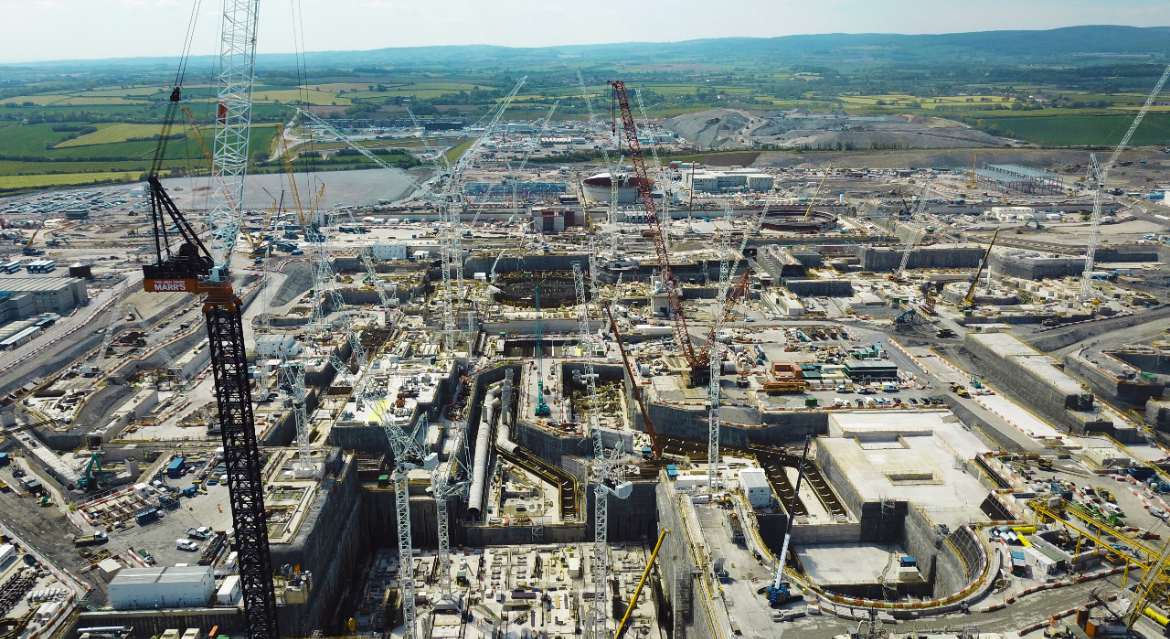Dundee team ensure power station is built to last
Published On Tue 22 Oct 2019 by Jonathan Watson

Concrete experts from the University of Dundee have cemented their status among the world’s best engineers by working on one of Europe’s biggest infrastructure projects.
A team from the University’s School of Science and Engineering has been utilising its extensive knowledge to test construction materials for the Hinkley Point C project, the first in a new generation of nuclear power stations for the UK capable of delivering 7% of the country’s low-carbon electricity.
Members of the School’s elite Concrete Technology Unit (CTU) were asked by EDF Energy and main civil-engineering contractor Bylor to perform ‘creep testing’ on samples earmarked for use at the Somerset site, including those of the concrete that will be used to house the all-important reactor.
“It was an honour to be approached by EDF Energy and Bylor to carry out this work,” said Dr Moray Newlands.
“As engineers we always want to be involved with the biggest, most exciting projects and Hinkley Point C is certainly one of the most important construction projects taking place in the UK.
“Here at Dundee we have a global reputation for our work with concrete technologies and creep testing is very niche. Not a lot of people can do this sort of research, so it was exciting to get involved with this incredibly important work.”
Creep testing replicates how heavy weight will impact materials such as concrete over prolonged periods of time. Samples identical to the concrete earmarked for the power station were shipped to Dundee, loaded with weight within the CTU laboratory and monitored over a two-year period.
With safety the highest priority and consistency required in every batch of concrete poured at Hinkley Point, the Dundee team’s research took place over four years and was conducted within strict criteria set by the engineering teams on-site.
Dr Newlands added, “It was a novel project for us and we worked with EDF Energy and Bylor to ensure that the tests we were performing were conducted to the highest standards.
“As well as being part of a major infrastructure project, this research has also given us a vast amount of data that we can utilise with our students to help them understand creep testing. Not only will Hinkley Point C provide power for decades to come, the construction process has helped us to educate the next generation of concrete engineers.”
For media enquiries contact:
Jonathan Watson
Media Relations Officer
University of Dundee
Nethergate, Dundee, DD1 4HN
Tel: +44 (0)1382 381489
Email: j.s.watson@dundee.ac.uk